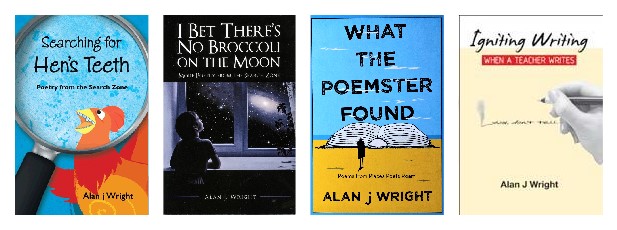What do you do when you want to remember something? Do you say it to yourself again and again until you learn it? That’s using repetition. Repetition in poetry may include a word, a phrase, a line, or even a stanza the poet wants to use more than once for particular effect. We hear it, We see it. We begin to feel its presence. When using repetition the poet must make sure that what is repeated is important to the poem, otherwise it can feel or sound overdone. In the poem, Bully For Me , I consciously repeated the words, 'But ours left' in each stanza hoping to create a sense of relief in the mind of the reader. Bully For Me We had a bully at our school I think every school has one -But ours left Now, I can ride to school Relaxed We had a bully at our school -But ours left And now playtime is fun again We had a bully at our school -But ours left I wonder if that person is happy? Like me and my friends Are now If we want young poets to u
